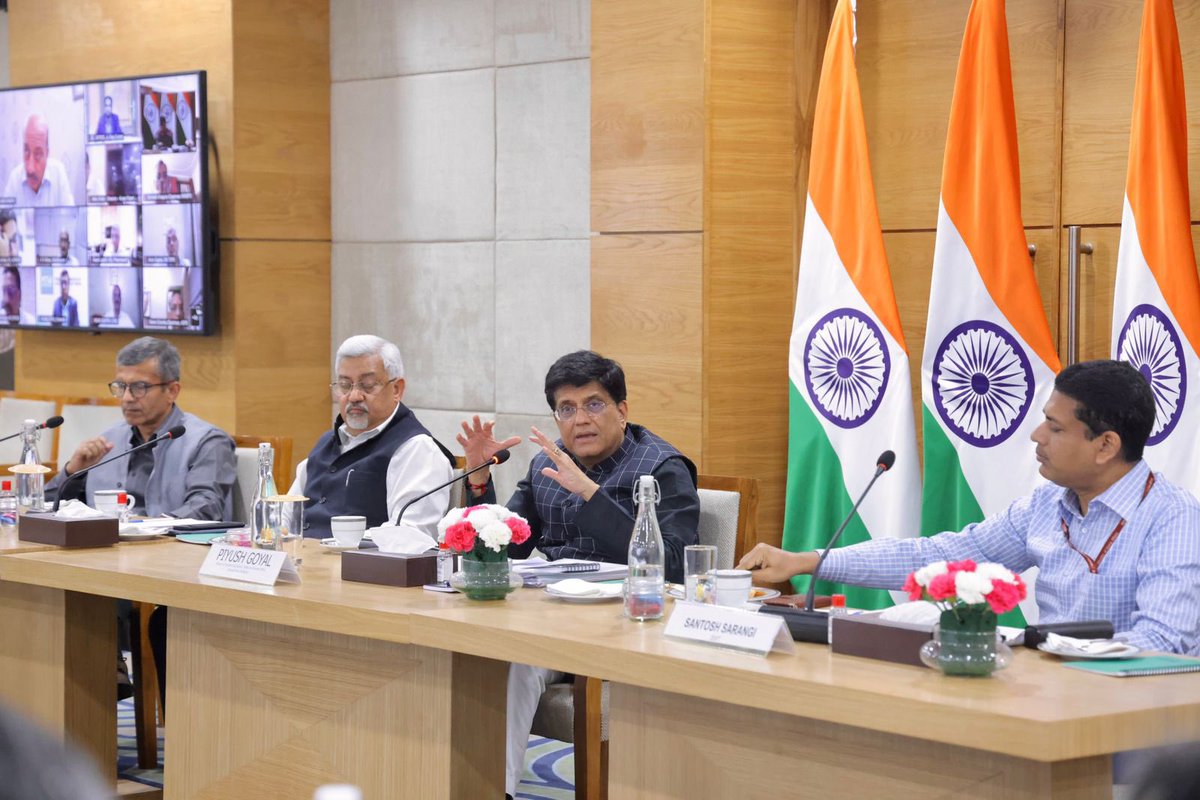The 8th meeting of the National Startup Advisory Council (NSAC) was held on Tuesday in New Delhi, under the chairmanship of Union Minister of Commerce and Industry, Piyush Goyal .

NSAC has recently reconstituted its board members and the non-official members were nominated by the Ministry of Commerce as the representatives of various stakeholders in the Indian startup ecosystem.
Significance of the startup council
The two year old NSAC has begun its journey in 2020 with an aim to shape stakeholder-driven public policy, to develop programs for the ever-changing needs of the Indian startup ecosystem.

The NSAC instituted under the Department for Promotion of Industry and Internal Trade (DPIIT), Ministry of Commerce and Industry was established to give the govt recommendations to take measures required to build a robust ecosystem to foster innovation and startups in India.
Re-constituted Council members
In order to make the Council more consolidated and focused on its goal, the Central Govt has nominated personalities from relevant fields, including founders of successful startups, veterans with years of experience in fueling companies in India, individuals to identify investor interests, investor advocates, proficient representatives from incubators and accelerators, and some associations of startup stakeholders.
Among 31 non-official members nominated by NSAC, the board comprises some renowned individuals like Rikant Pitti, Co-Founder of Easy Trip Planners, Sanjay Nayar of Sorin Investments, Kunal Bahl from Snapdeal, and Sanjeev Bikhchandani of Info Edge. Such involvement will help to bolster innovative ideas and prompt investors.

Rikant Pitti shared his joy upon being honoured to be nominated as the council member and also expressed hope of driving innovation and contributing to the growth of startups. Furthermore, the collaboration with fellow council members will unfold a positive impact on the startup ecosystem.
NSAC’s mission and vision
With boasting over 1.14 lakh of recognised startups in India, govt envisaged a $1 trillion digital economy by 2025. NSAC is aligned with this vision.

The council is generally responsible for promoting a culture of innovation, supporting creative and innovative ideas, and helping to step ahead in incubation and research and facilitating org. to blend the principles of innovation, and critically enhance accessibility to net capital for startups.
However, The NSAC is expected to focus on driving global capital for investments in Indian startups, mobilising courage and spirit in doing business with ease and bringing Indian startups to the global markets.
Tags: NSAC, Piyush Goyal, Startup ecosystem, capital, stakeholder



